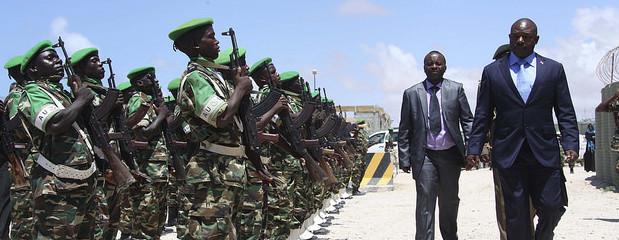Sudan: The NEC and the First Day of Polling
Sudan’s first democratic election in 25 years started on Sudan 11 April 2010, with boycotting by major political parties and many question over the impartiality and competences of NEC to run the exercise. We cannot deny that the election process is very complicated and difficult by any standard, and the members of NEC do not have previous experience in running any election let alone this very complicated one.
Already we can see a lot of problems arising during the polling, at the polling centres around the country. Problems like people’s names missing from the registration lists, and other people voting who are not on the list or who are underage, names or symbols missing from the ballots or being mixed up, the wrong ballots being delivered to some constituencies, polling officers entering the voting booths with voters or instructing them how to vote, and so on. There are a lot of worries that the NEC staff are not trained in using the software for compiling the results properly. At the very minimum, the NEC needed more time to sort out these logistical problems and train its staff properly.
What raises suspicions over the NEC performance and its relation with the ruling National Congress Party, is the way it handled all the complaints and requests from anyone. Its line has always been to support what the NCP wanted. When the Carter Center raised some very genuine concerns, regarding some practices and also logistical difficulties, President Bashir threatened the international monitors by saying he will cut their tongues and expel everyone ask for delaying the election even for one week, as the Carter Center had suggested might be necessary. At the same time, the NEC rejected the Carter Center remarks and asserted their ability to handle all the issues related to the election very well. In just the first few hours after the opening of the polling stations, the Carter Center position proved to be right as the NEC failed to delivered the voting papers in time to states. For example, in White Nile the voting didn’t start in the first day.
In their last news conference the day before the polling day the NEC admitted that the laws which curtailed freedom of expression and association had hindered the election campaign at the time when they rejected Juba Alliance request to reform the mechanism which was supposed to handle the public sector owned radio and TV.
The NEC issued its directive on the limit of funds to be spent by parties in their electoral campaigns just one week before the polling day. This was long after the NCP had spent more the 25 million US dollars, just in campaigning not other undisclosed deals.
The NEC’s reasons for refusing to delay the election were because the CPA and the interim constitution required it to be held now. However according to the CPA modalities of implementation the election was supposed to be held at the end of the third year, or the beginning of the fourth. They extended the voters registration time plan many times.
The NEC breached the election Act many times:
– By bringing forward the date at which any candidate supposed to withdraw his/her candidateship by one month from the 12 of March to the 12 of April without any justification.
– The accepted back the candidateships of SPLM candidates for the National Assembly from South Kordofan , after they withdraw them within the legal time frame, which was because the NCP and SPLM agreed to that, although it was a clear breach of the law.
– Many of the polling station staff are members of the NCP, and some are from the neighbourhood popular committees which are totally controlled by the NCP.
– Allowing the certificates from the popular committee to be used as source of identification for voters, without using any extra document, has been common. That a clear breach of their own rules, and opens the gate to frauds. That is clear in many polling stations, in the first day of voting as, some NCP members are sitting near to the polling station issuing certificate to allow people to vote without any further checks.
– Most of the people chosen as local observers are members of the NCP, and that also clear violation of the rules as people are not allowed to be monitors if they are member of a political party or support any candidate election campaign.
– The language the NEC is using to respond to any complaint from other political parties is just an imitation of the NCP leaders’ language, so that they are seen as taking sides in the ongoing political dispute between the NCP and other political parties. That led other political parties passing a vote of no confidence on it.
All those problems have overshadowed the whole election process and seriously undermined the NEC’s credibility.






